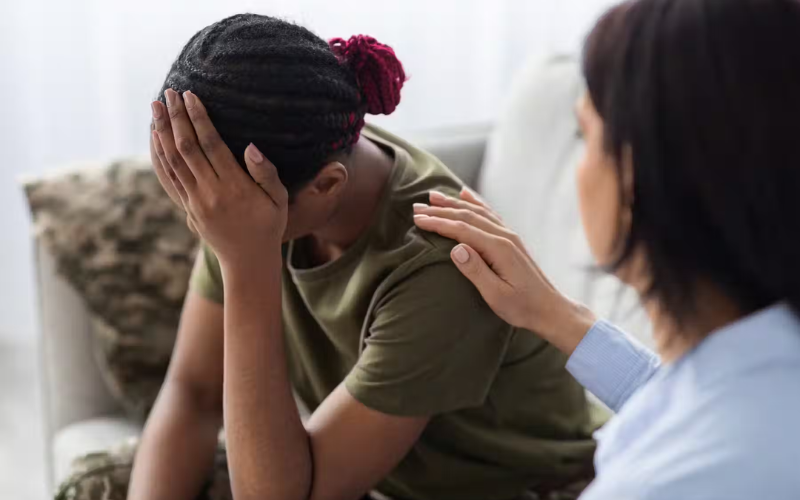What are the six symptoms of PTSD?

Understanding the Shadows of PTSD: Six Common Symptoms
Post-Traumatic Stress Disorder, or PTSD, is a mental health condition that can cast a long and daunting shadow on a person’s life. It’s a silent struggle that can arise after experiencing or witnessing a traumatic event. Recognizing the symptoms is the first crucial step toward healing and recovery. Let’s illuminate six common signs of PTSD.
Intrusive Thoughts and Memories
PTSD often manifests as an unwelcome and persistent replay of traumatic memories. These intrusive thoughts can appear as flashbacks, nightmares, or distressing recollections. They can be overwhelming, triggering intense emotional responses and disrupting daily life. It’s like a broken record, stuck on a painful loop. The mind becomes a captive audience to horrors it desperately wants to forget.
Avoidance Behaviors
To shield themselves from the pain of traumatic memories, individuals with PTSD may develop avoidance behaviors. They might steer clear of people, places, or activities linked to the distressing event. This can lead to social isolation and a shrinking world as they erect barriers to protect themselves. It’s as if they’re trying to bury the past, but the memories continue to haunt them. A life once filled with color and connection can fade into a monochromatic existence marked by avoidance.
Negative Changes in Mood and Thinking
PTSD can cast a dark cloud over a person’s emotional and cognitive landscape. Feelings of guilt, shame, or anger might become frequent companions. They might find it challenging to concentrate, make decisions, or envision a hopeful future. A sense of detachment from others and a loss of interest in previously enjoyed activities are also common symptoms. It’s like the world has lost its vibrancy, replaced by a muted and dreary palette. The once-familiar world can feel foreign and hostile, filled with uncertainty and despair.
Hyperarousal
Individuals grappling with PTSD often experience a heightened state of arousal. They may become easily startled, irritable, or struggle with sleep. Physical symptoms such as restlessness, muscle tension, and difficulty concentrating can accompany this hyperarousal. It’s as if the body is perpetually on high alert, bracing for the next threat. The mind races, the body tenses, and sleep becomes an elusive refuge.
Dissociative Symptoms
Dissociation is a defense mechanism where the mind disconnects from the overwhelming reality of trauma. Individuals with PTSD may experience derealization, feeling detached from their surroundings, or depersonalization, where they feel disconnected from their own body. It’s as if they’re watching a movie of their life, unable to fully engage or connect with the present moment. The world may appear unreal, and their sense of identity can become blurred. Addressing these symptoms is a crucial part of PTSD recovery, helping individuals reconnect with themselves and their environment.
Physical Symptoms
The mind and body are deeply intertwined, and PTSD often manifests in physical ailments. Chronic pain, headaches, digestive issues, and fatigue are common companions of this condition. These physical symptoms can significantly impact a person’s overall well-being and quality of life. It’s as if the body is carrying the weight of the trauma. The physical manifestations of PTSD can be as debilitating as the emotional ones, creating a vicious cycle of suffering.
Recognizing these symptoms is crucial for seeking help. If you or someone you know is experiencing these signs, it’s essential to reach out to a mental health professional. PTSD is treatable, and with the right support, individuals can embark on a path to healing and recovery.
PTSD Treatment With MeRT is a promising therapeutic approach that has shown effectiveness in addressing the core symptoms of PTSD. This innovative treatment offers hope for those grappling with the aftermath of trauma. By targeting the brain’s neural pathways, MeRT can help individuals regain control over their thoughts and emotions, paving the way for a more fulfilling life.


